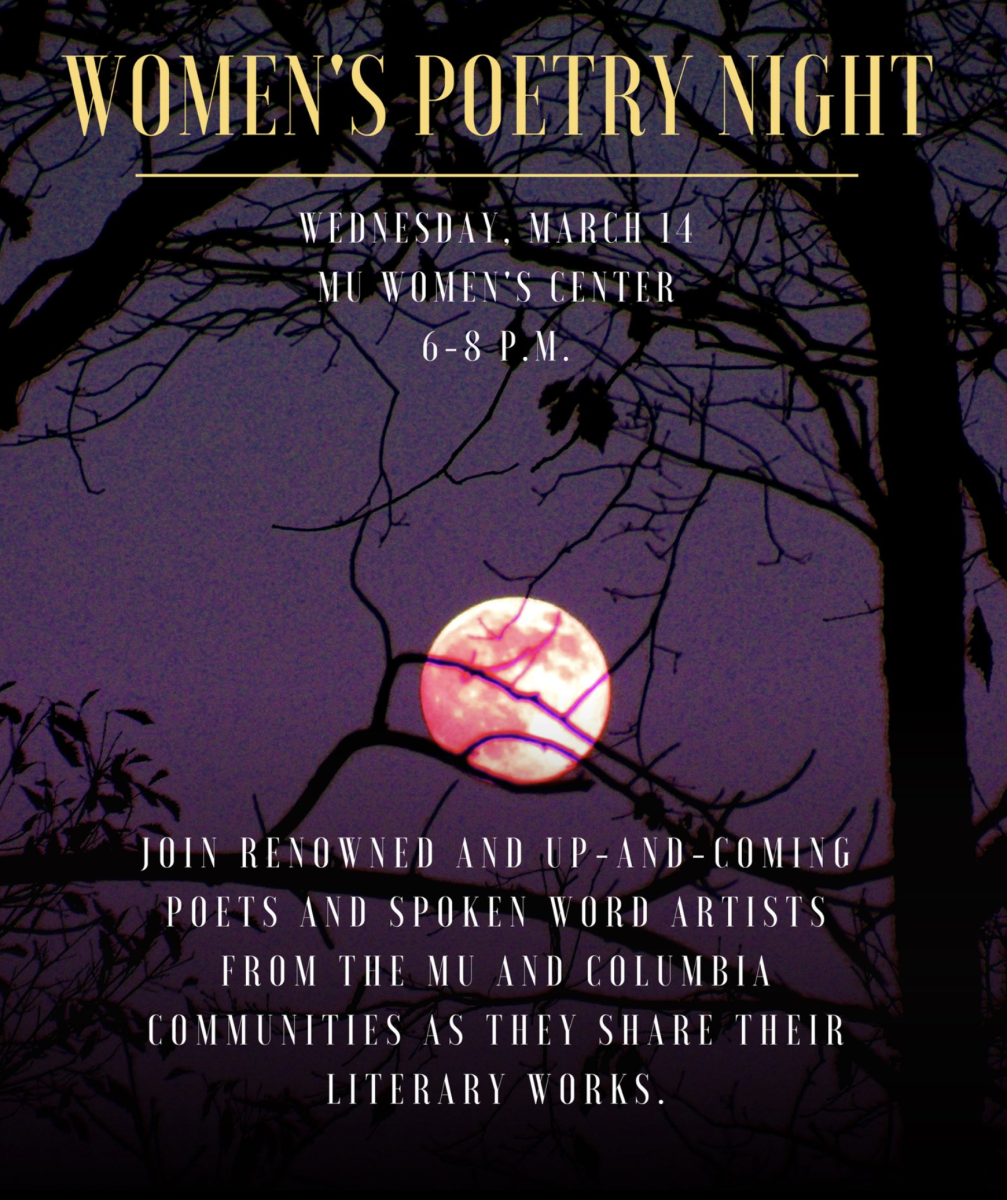
The 22nd annual Women’s Poetry Night combined artistry with conversation to facilitate poetry performances on March 14 at the Women’s Center.
Eight women read their poetry, each with honest voices and deeply personal stories. Their poems ranged from heartfelt accounts of familial relationships to expressions of both self-doubt and triumph. Sarah Cox, a student staff member at the Women’s Center and first-time poetry performer, began by telling the crowd of her love for affirmation. She felt relieved and happy after her performance.
“It was really cool to be in this space that I’m so familiar with and sharing it with people that were very sympathetic,” Cox said. “I loved that I could look into the audience and everyone was nodding and smiling at me. I felt so good about myself.”
Cox addressed the way society perceives large-bodied women with her poem “Space” and the way people have negatively reacted to her size.
“Not everything in this universe is encouraged to take up space,” Cox said in her poem.
The Women’s Center and the Counseling Center, who sponsored the event, prioritized making everyone feel safe and comfortable. The event began with a representative from the Counseling Center speaking to the crowd about its resources. She explained that mental health issues disproportionately affect women and minority groups.
As the night progressed, audience members were invited to share their answers to a number of questions, such as “Who inspires you?” and “How do you speak your truth?” The crowd became more comfortable and responded to replies with cheers and clapping, while the poets received an abundance of snaps.
The poets ranged from first-time readers to experienced performers. One performer, Hanna Caldwell, has been writing poetry since she was 12 years old and performing it for roughly two years. She explained the way performing at the Women’s Center was different than performing in other places.
“Everyone knows they’re here for poetry,” Caldwell said. “If you’ve ever been the only poet in a room full of musicians, it is the worst feeling because no one quite wants you up there but they’re willing to let you talk because they have to. Here, people are like, ‘Yes, we came for this,’ and that’s a very unique and wonderful feeling.”
Catherine Parke, MU professor emerita of English from 1973-2002, happily returned to read one of her poems to the group and hand out “Art in Hard Times,” a list of her favorite works of art from previous years. She explained that the best art is made during difficult times. She also had the audience pass around an object and share a “beautiful memory” and encouraged them to take this practice back home with them.
The coordinator of MU’s Women’s Center, Danielle Palomo, participated in the night by reading her own poetry. She described the experience as both nerve racking and fun and emphasized the importance of this kind of event.
“This is just an opportunity for women to really share their stories and really share their words because for the longest time, women’s poetry wasn’t exactly considered worth listening to at all,” Palomo said.
Cox expressed similar feelings about the night and the history of women as poets.
“I think poetry is such an amazing form of expression that women have been kind of shut off from for a lot of our history,” Cox said. “I mean, for most of history, anonymous was a woman. So I just think that spaces like this and times like this and events like this just allow us to give back what history has stolen from us.”
_Edited by Alexandra Sharp | [email protected]_